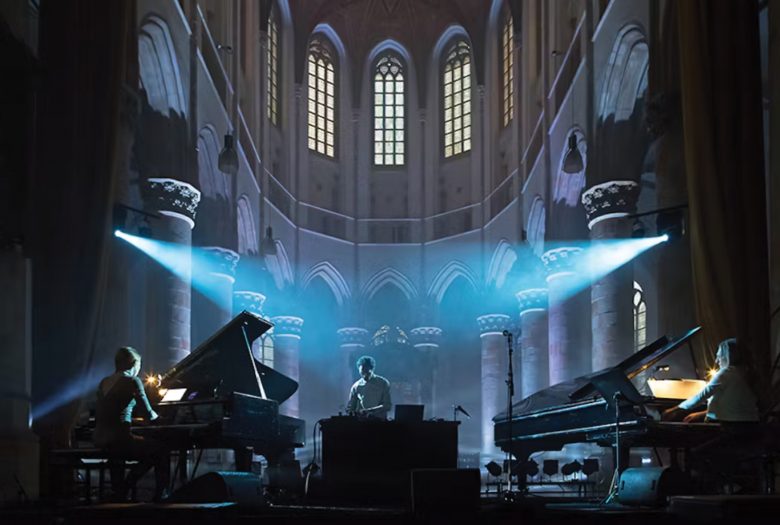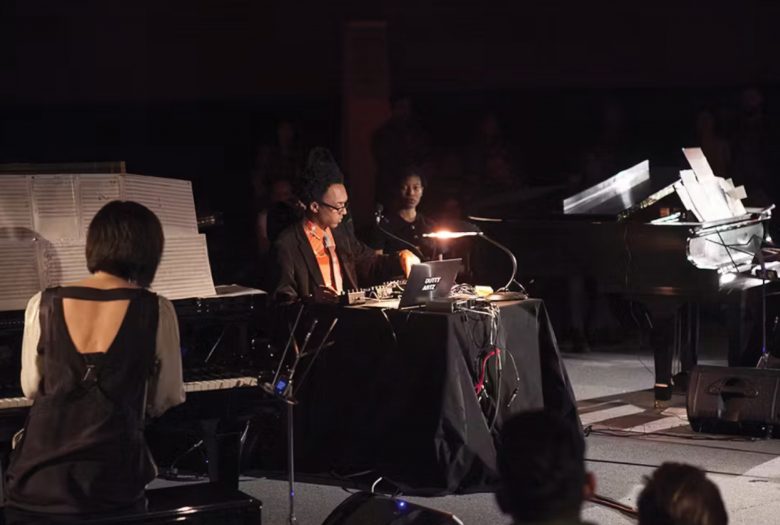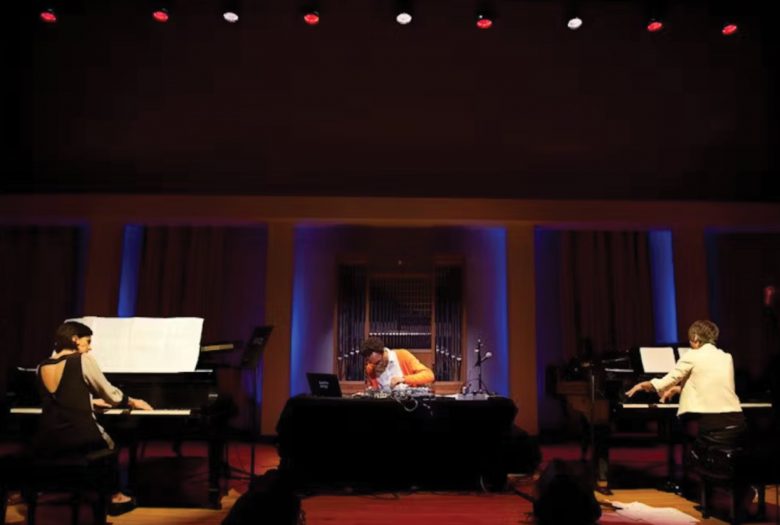This performance is part of Roulette’s four-night series, Music for Two Pianos, which features new, historic, and reimagined compositions by some of the great composers of our time: Anthony Braxton; Robert Ashley and “Blue” Gene Tyranny; Henry Threadgill; and Julius Eastman.
“I interpret the open-ended, irreverent nature of Julius Eastman’s legacy as a call to conversation,” explains Jace Clayton, whom some may know as the globetrotting DJ /rupture. “Reverence can be a form of forgetting.”
Clayton is no stranger to irreverence himself; in fact, he’s built a career around it, ripping unheard and forgotten-about sounds from their original context and sonically re-imagining them while retaining a core of human warmth at the heart of this deconstructive process. On his 2013 album, The Julius Eastman Memory Depot (New Amsterdam Records)—which he brings to Roulette—Clayton again leads with his sense of compassion, wide-eyed exploration, and razor-sharp intellect, but instead of using a variety of sources for inspiration, for the first time, Clayton has chosen a single, if multivalent, subject for his artistic dissection: the life and music of gay, Black, pioneering minimalist composer Julius Eastman, an influential member of the 1980s Downtown New York scene.
Clayton pulls acoustic and digital sounds toward each other by running the the music from two pianos through a laptop, where he uses custom-built digital tools informed by his acclaimed Sufi Plug Ins project—one such tool uses the overall volume of the pianos to simultaneously adjust a drone being generated by their pitches—to create an electronic layer built entirely on the pianos’ sound. Clayton chose to focus on two of Eastman’s longest piano works for the album, “Evil Nigger” and “Gay Guerrilla,” to allow himself as much opportunity as possible to explore the sound and range of the piano, Eastman’s rhythmic and muscular writing, and the internal dynamics of each piece.
Jace Clayton electronics, voice
David Friend piano
Emily Manzo piano
“You can never quite tell, listening to the album, where the sounds are originating; the sound is a tempest with no center. The result honors the intentions behind Eastman’s trickster spirit to the point that Clayton and Eastman seem very much to be making this music together in real time.” —Pitchfork
A livestream will be available free of charge at 8pm on the day of the performance and archived for future viewing.




